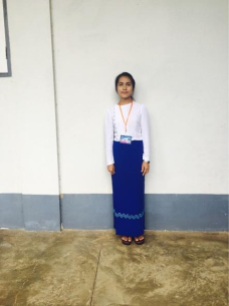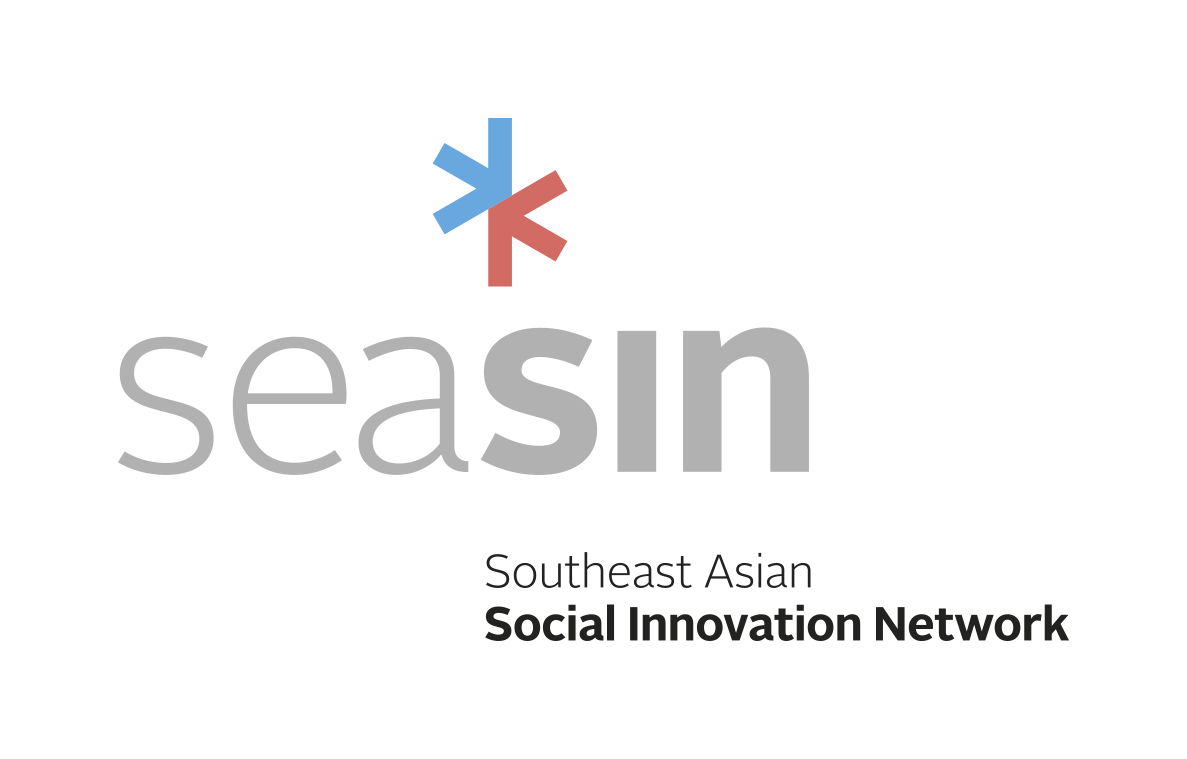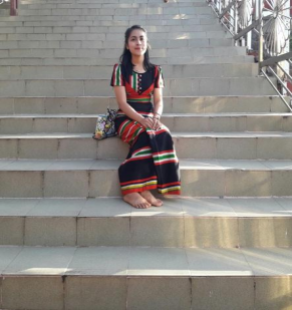If the universities nurture young people not only academically but also practically, it can have positive effects for the community.
What’s your name? Tell us about yourself.
My name is Nyein Nyein Thaw. I’m studying a masters course of accounting and finance at the Co-operative University, Thanlyin. I’m a volunteer of ESC (Myanmar). I propose to be a member of innovation and creative paper art and crafts project. I want to remind people to have awareness about the environment, to share knowledge, ideas and ways how to conserve resources sand how to improve our society. I also would like to console depressed people and help to reduce their sadness.
What do you think the most important social challenges are at the moment?
There are social challenges in many areas of our society. However, I think the most important social challenges at the moment in our country are unemployment and pollution.
What are you doing to address this challenge or what to do you hope to do?
Addressing social challenges should be seen as the main aims of the community. To solve the unemployment problem, we need to create more job opportunities. It needs to involve more entrepreneurship firms and the ability to produce goods domestically. Currently, people want to get good jobs and jobs want skilful and experienced people. So, the problem needs the educational sector to be improved and many part time jobs to be created for students. By means of our country, it should produce more agricultural food and to raise national productivity.
To solve the pollution problem, the government should adopt rules and regulations about the waste and protect this through the law. The law also needs to be enforced and the citizens need to abide the law. Bins should be put at many places and many recycle processes should be done. We should try to substitute things that can easily decay instead of plastic.
How do you think students or young people can play a role in helping solve these challenges?
Young people can play a role in helping solve these challenges. They’re very important because they’re active, fresh, energized, curious, and keep in touch with modern technology. They’re enthusiastic to fight against the challenges. They also understand the current situation.
What did you learn at the SEASIN studio?
At the SEASIN studio, I learned new ideas, creative thinking, and campaigns. I learnt that coordination and negotiation are important to solve a problem.
Has the SEASIN studio introduced you to new ways of thinking or working?
The SEASIN studio has introduced me to new ways of expressing my opinion and ideas to combine with the ideas of others. I realized that when a project is implemented to solve the social problem, it also needs to investigate society’s perception about this impact. And I’m getting more interested in how to participate in social activities.

What does social innovation mean to you?
Social innovation means to me the improving of existing things and developing new things by using resources efficiently and effectively. It must have social impact and be beneficial for the society.
Do you think it is important that universities play a role in the community that is more than as academia?
Yes, I think. Because universities have many young and knowledgeable people. If the universities nurture these young people not only academically but also practically, it can have positive effects for the community. The universities create teamwork. For an instance, at our university, some teachers are performing some projects such as recycle processes, teaching handicraft. Our university also gives information to participate as a volunteer in some enterprises and knowledge by outside experts and business owners.
What can universities do to help students become better problem solvers of future challenges?
Universities can hold debates and group competitions. They can get students to study cases, to evaluate cause and effect, to find ways to solve problems and to think how to plan different ways to work towards sustainability.


Recent Comments